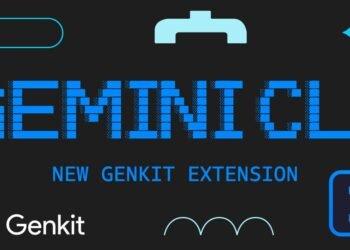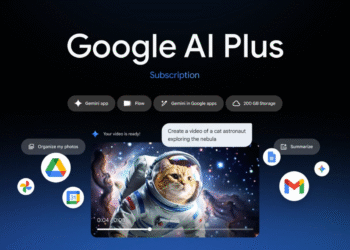Amid a fierce debate about the environmental toll of artificial intelligence, Google released a new study that says its Gemini AI assistant only uses a minimal amount of water and energy for each text prompt. But experts say that the tech giant’s claims are misleading.
Google estimates that a median Gemini text prompt uses up about five drops of water, or 0.26 milliliters, and about as much electricity as watching TV for less than nine seconds, roughly 0.24 watt-hours (Wh), which produces around 0.03 grams of carbon dioxide emissions.
Google’s estimates are lower than previous research on water- and energy-intensive data centers that undergird generative AI models. That’s due in part to improvements in efficiency that the company has made over the past year. But Google also left out key data points in its study, leading to an incomplete understanding of Gemini’s environmental impact, experts tell The Verge.
“They’re just hiding the critical information.”
“They’re just hiding the critical information,” says Shaolei Ren, an associate professor of electrical and computer engineering at the University of California, Riverside. “This really spreads the wrong message to the world.” Ren has studied the water consumption and air pollution associated with AI, and is one of the authors of a paper Google mentions in its Gemini study.
A big issue experts flagged is that Google omits indirect water use in its estimates. Its study included water that data centers use in cooling systems to keep servers from overheating. Those cooling systems have sparked concerns for years about how data centers might exacerbate water shortages in drought-prone regions. Now, attention is shifting to how much more electricity data centers might need to accommodate new AI models. Growing electricity demand has triggered a spate of new plans to build gas and nuclear power plants, which also consume water in their own cooling systems and to turn turbines using steam. In fact, a majority of the water a data center consumes stems from its electricity use — which Google overlooks in this study.
As a result, with Google’s water estimate, “You only see the tip of the iceberg, basically,” says Alex de Vries-Gao, founder of the website Digiconomist and a PhD candidate at Vrije Universiteit Amsterdam Institute for Environmental Studies who has studied the energy demand of data centers used for cryptomining and AI.
Google left out another important metric when it comes to power consumption and pollution. The paper shares only a “market-based” measure of carbon emissions, which takes into account commitments a company makes to support renewable energy growth on power grids.
A more holistic approach would be to also include a “location-based” measure of carbon emissions, which considers the impact that a data center has wherever it operates by taking into account the current mix of clean and dirty energy of the local power grid. Location-based emissions are typically higher than market-based emissions, and offer more insight into a company’s local environmental impact. “This is the groundtruth,” Ren says. Both Ren and de Vries-Gao say that Google should have included the location-based metric, following internationally recognized standards set by the Greenhouse Gas Protocol.
Google’s paper cites previous research conducted by Ren and de Vries-Gao and argues that it can provide a more accurate representation of environmental impact than other studies based on modeling that lack first-party data. But Ren and de Vries-Gao say that Google is making an apples-to-oranges comparison. Previous work was based on averages rather than the median that Google uses, and Ren faults Google for not sharing numbers (word count or tokens for text prompts) for how it arrived at the median. The company writes that it bases its estimates on a median prompt to prevent outliers that use inordinately more energy from skewing outcomes.
“You only see the tip of the iceberg, basically.”
When it comes to calculating water consumption, Google says its finding of .26ml of water per text prompt is “orders of magnitude less than previous estimates” that reached as high as 50ml in Ren’s research. That’s a misleading comparison, Ren contends, again because the paper Ren co-authored takes into account a data center’s total direct and indirect water consumption.
Google has yet to submit its new paper for peer review, although spokesperson Mara Harris said in an email that it’s open to doing so in the future. The company declined to respond on the record to a list of other questions from The Verge. But the study and accompanying blogs say that Google wants to be more transparent about the water consumption, energy use, and carbon emissions of its AI chatbot and offer more standardized parameters for how to measure environmental impact. The company claims that it goes further than previous studies by factoring in the energy used by idling machines and supporting infrastructure at a data center, like cooling systems.
“While we’re proud of the innovation behind our efficiency gains so far, we’re committed to continuing substantial improvements in the years ahead,” Amin Vahdat, VP/GM of AI & Infrastructure for Google Cloud, and Jeff Dean, chief scientist of Google DeepMind and Google Research, say in a blog.
Google claims to have significantly improved the energy efficiency of a Gemini text prompt between May 2024 and May 2025, achieving a 33x reduction in electricity consumption per prompt. The company says that the carbon footprint of a median prompt fell by 44x over the same time period. Those gains also explain why Google’s estimates are far lower now than studies from previous years.
Zoom out, however, and the real picture is more grim. Efficiency gains can still lead to more pollution and more resources being used overall — an unfortunate phenomenon known as Jevons paradox. Google’s so-called “ambitions-based carbon emissions” grew 11 percent last year and 51 percent since 2019 as the company continues to aggressively pursue AI, according to its latest sustainability report. (The report also notes that Google started excluding certain categories of greenhouse gas emissions from its climate goals this year, which it says are “peripheral” or out of the company’s direct control.)
“If you look at the total numbers that Google is posting, it’s actually really bad,” de Vries-Gao says. When it comes to the estimates it released today on Gemini, “this is not telling the complete story.”
















